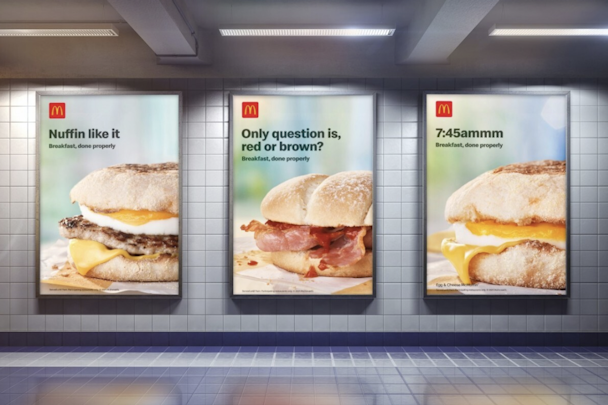Ad Association dismisses claims TfL junk food ad ban works
A ban on junk food advertising by Transport for London (TfL) has helped Londoners eat more healthily, according to new research. But the Advertising Association (AA) has dismissed the findings, saying it’s gone to “torturous efforts to justify it.”

The ban has contributed to an approximate 1000 calorie per day decrease in unhealthy purchases in Londoners’ weekly shops
The ban on all high calorie, salt and sugar food and drink promotions came into effect in February. At the time, many across the advertising industry had voiced their concerns that the ban would be largely ineffective, with AA’s chief exec Stephen Woodford arguing there was “no clear evidence” that the ban would solve the problem of childhood obesity nor unhealthy eating habits.
He said: “We all want to see rates of childhood obesity dropping, but believe there are far better ways to achieve this goal.”
Research published today (February 18) from the London School of Hygiene & Tropical Medicine claims that the ban has contributed to an approximate 1000 calorie per day decrease in unhealthy purchases in people’s weekly shops,
The biggest effects were seen for chocolate and confectionery, with an almost 20% decrease, or 317.9 calories, in average weekly household purchases of energy from these products.
The decrease works out to be about 385 calories a person a week – equivalent to every Londoner in the study buying about 1.5 fewer standard-size bars of milk chocolate each week.
Responding to the news of the ban’s recent reported success, Woodford told The Drum: “As all marketing and advertising professionals will know, advertising bans are crude and ineffective measures when trying to address something as complex and pervasive as obesity. They will also know that the ASA keeps HFSS advertising under constant review and the exposure of under-16s to HFSS advertising has been reduced dramatically in the last decade.
“Marketing and advertising have a very low impact on the factors that drive obesity, but the ASA has taken a cautious approach to ensure that children’s exposure has been continually reduced.
“One obvious anomaly in this new study is the claimed impacts are around 20 times higher than the government’s estimate of projected calorie reductions from the ban on HFSS on TV pre-9pm and on all online HFSS product advertising. This showed a trivial benefit – a reduction of only around 2 calories a day. It required some tortuous efforts to justify and was riddled with errors, which remain uncorrected.
“The TfL ad inventory is no doubt highly effective, but it is only a part of Londoners’ media consumption and certainly way less than TV and online. Common sense, let alone marketing effectiveness expertise, might lead one to question these results more closely. The other much more serious anomaly is that obesity rates have rocketed in London and around the UK, presumably due to the impacts of the pandemic on behavior and activity levels, which is testament to the complex, multifaceted societal issues that drive obesity. Which is where our political leaders in City Hall and Westminster ought to be directing their efforts, in my humble opinion.”
Woodford’s sentiments are echoed across the industry at wider bans on advertising foods high in fat, sugar and salt (HFSS) online and on TV before 9pm in an attempt to tackle the obesity crisis in children worsened by lockdown-forced inactivity, with one anonymous senior ad exec saying: “It’s a stupid, dumb, idiotic, pointless waste of effort and I hate this stupid government for sticking its nose in where it shouldn’t be.”
It remains to be seen whether the claimed success of TfL’s ban will be replicated across the government’s efforts to tackle obesity through curbs on advertising, as a report commissioned by the government’s own obesity research unit warned that these efforts will fail unless much wider action is urgently taken to transform the entire food environment.

